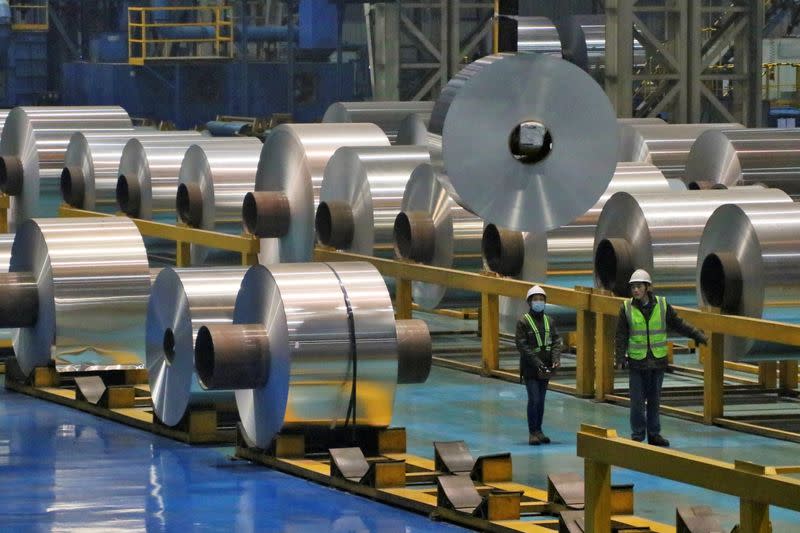China’s factory gate prices fell more than expected in January, with the producer price index (PPI) down 0.8% on a year earlier, the latest government data showed.
The fall in the PPI was higher than the 0.7% drop in December and larger than economists forecast in a Reuters poll, despite manufacturing returning to growth in January.
It suggests that flashes of domestic demand that had stoked consumer prices after the zero-Covid policy ended are not yet strong enough to rekindle upstream sectors.
The consumer price index (CPI) in January was 2.1% higher than a year earlier, up on the 1.8% annual gain seen in December, data from the National Bureau of Statistics (NBS) showed on Friday. That was just shy of the 2.2% increase economists had predicted in a Reuters poll.
CPI was boosted by a seasonal surge in spending over the Lunar New Year festival, with airfares, movie tickets, and travel prices up 20.3%, 10.7% and 9.3% respectively, according to NBS data.
ALSO SEE:
US ‘Not The Only Target’ Of Chinese Spy Balloons: Blinken
Significant headwinds
Economists expect the cost of living in China will pick up over the coming months now that its zero-Covid policy has been abandoned. Policy insiders expect China to stick to an inflation target of around 3% this year, the same as last year.
Analysts expect that inflation will remain well behind the high rates seen in Western countries and have forecast monetary easing is more likely than tightening.
“We anticipate further cuts to policy rates before long, the first of which might come as soon as next Wednesday,” Julian Evans-Pritchard, senior China economist at Capital Economics said in a note.
The world’s second-largest economy continues to face significant headwinds, including an ailing property sector, weakening external demand for Chinese exporters, and near-record levels of youth unemployment.
Surprise at factory price falls
The 0.4% monthly decline in PPI was surprising and seemed to suggest that the manufacturing sector was not yet running at full speed, Zhou Hao, chief economist at Guotai Junan International, said in a note.
The drop in factory gate prices was unexpected because China’s economic activity returned to growth in January. The official purchasing managers’ index (PMI), which measures manufacturing activity, crossing the 50-point threshold for the first time since September.
Falling input prices, including chemicals, as well as lower crude oil and domestic coal prices contributed to the greater-than-expected decline.
On the consumer side, food prices were 6.2% higher in January than a year earlier, after an annual rise of 4.8% seen in December.
Pork prices fell by 10.8% in January, down 2.1 percentage points on the prior month, as the supply of live pigs continued to increase, but were up 11.8% on the year.
Core inflation, which excludes food and energy prices ticked up to 1.2% last month from an annual gain of 0.7% in December.
Senior government officials have repeatedly signalled their intent to harness the consumer power of the country’s 1.4 billion people, after economic growth in 2022 slumped to one of its weakest levels in nearly half a century.
- Reuters with additional editing by Jim Pollard
NOTE: The headline on this report was amended on February 10, 2023.
ALSO SEE:
Investors Eye Better Returns as China Govt Bonds Lose Favour
Adani Rout Deepens Amid Concern on MSCI Downgrades
India Among Contenders For Volvo EV Plant Outside China – ET
























